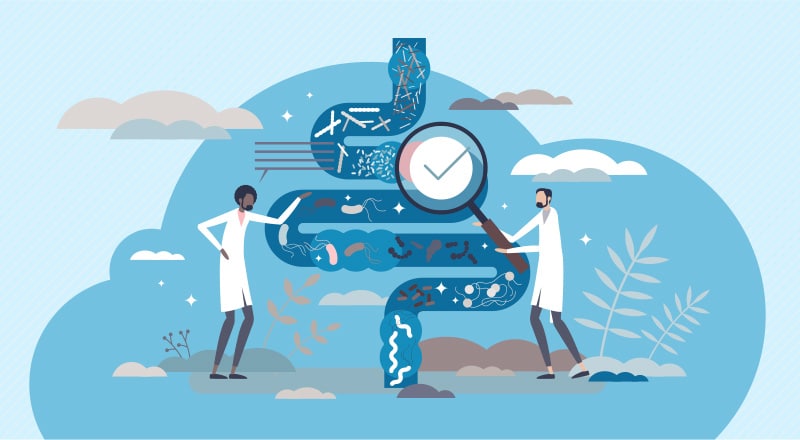April is irritable bowel syndrome (IBS) awareness month. We’ve all heard of IBS, but what is it?
IBS encompasses a myriad of symptoms including bloating, constipation, diarrhea, urgency, abdominal cramping/pain, or a combination of these symptoms. Patients experience varying manifestations of IBS and varying degrees at different times in their lives. Fortunately, IBS is not a life-threatening disorder in most cases, but it can have serious long-lasting implications to a person’s overall physical well-being, social interactions, and mental health. IBS is estimated to be diagnosed in 20% of Canadians and twice as common in women than men.
IBS is multifactorial. Several causes or a combination of issues are implicated in an IBS diagnosis. The Gut-Brain axis is a bi-directional communication link that is affected by the microbiome in the digestive tract. Several studies have demonstrated that alterations in the gut microbiome caused by a deficiency in “good” bacteria and/or an excess of “abnormal” bacteria, viruses or fungus are implicated in altered communication of the gut-brain axis. Several neurotransmitters are produced in the gut, and with an altered microbiome their delicate balance is interrupted. This can lead to neuropsychic disorders such as anxiety and depression. Estrogen and progesterone dysregulation can cause damage in gut barrier function and slow gut motility.
IBS is a diagnosis of elimination. There is no one test to determine if someone has IBS. Often other disorders are ruled out first through a complete history, physical exam, and testing.
As naturopathic doctors we always must try to identify and treat the root cause of an illness. Food sensitivity testing, comprehensive stool testing, neurotransmitter testing, comprehensive hormone evaluation, and breath tests can identify underlying causes for a gastrointestinal disorder.
Once underlying issues are identified a complete treatment plan can be prescribed. Treatments can range from supplements and dietary suggestions to in-office procedures.
References
https://gutscharity.org.uk/2022/04/irritable-bowel-syndrome-awareness-month-2022/

